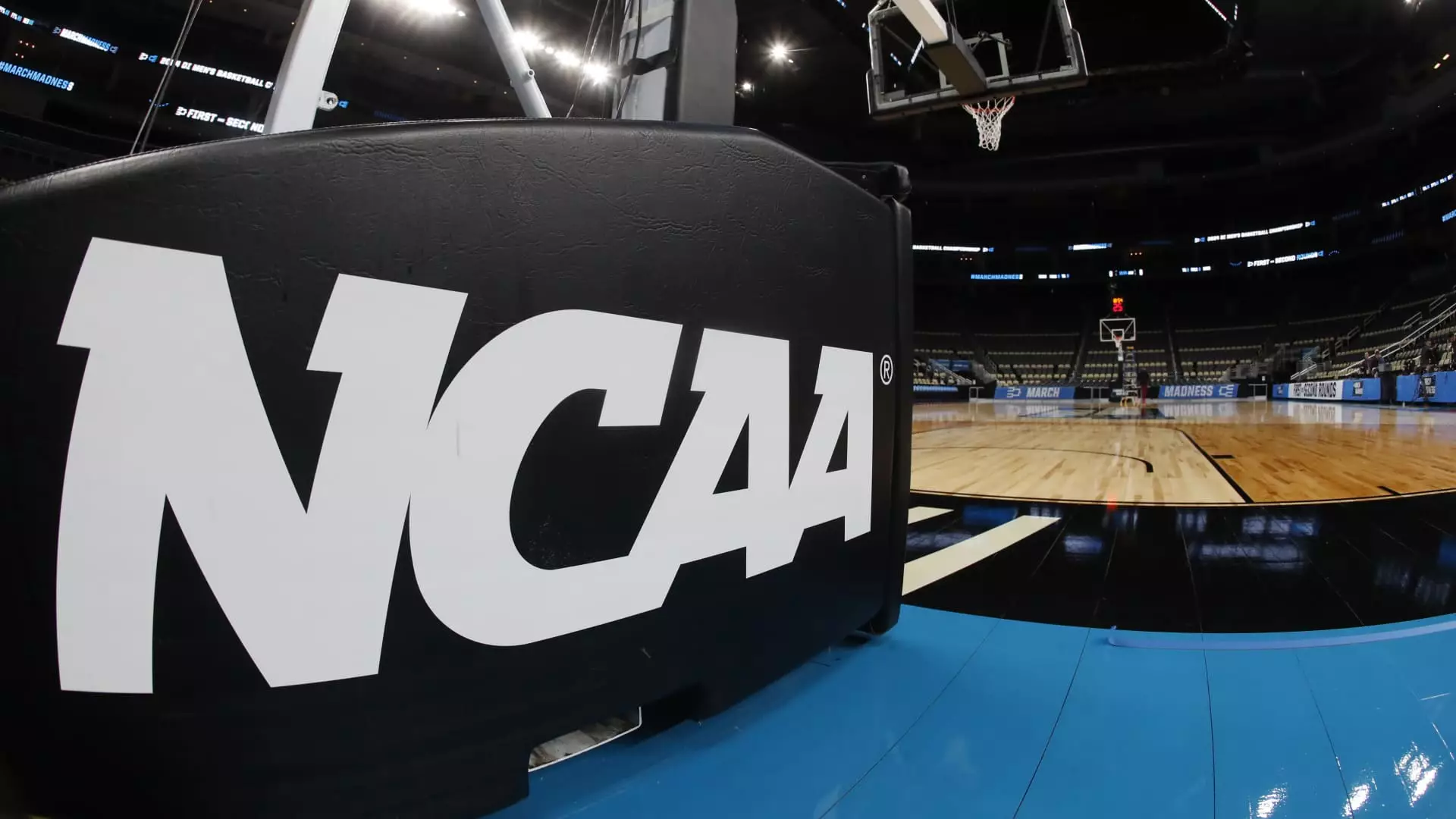In a significant turn of events, the National Collegiate Athletic Association (NCAA) recently altered its policy governing transgender student-athletes, drawing sharp criticism from various quarters. This change comes on the heels of a controversial executive order signed by former President Donald Trump, which threatens financial sanctions against educational institutions that permit trans women to compete in women’s sports. The implications of this policy shift extend beyond competitive sports, raising questions about inclusivity, identity, and rights within the realm of athletics.
Under the revised NCAA policy, individuals assigned male at birth – classified as trans women – are restricted from participating in formal competitions on women’s teams. While these athletes may practice alongside their female counterparts and access related benefits, the policy effectively isolates them from competition. Furthermore, it stipulates that all students, irrespective of their gender identities, can seek participation in men’s teams, although athletes utilizing testosterone are required to navigate a cumbersome medical exemption process.
Additionally, the policy imposes further restrictions on students assigned female at birth who undergo testosterone treatment or hormone therapy. This raises concerns not only for transgender athletes but also for intersex individuals and those undergoing medical treatments for various conditions, limiting their participation in women’s sports.
Historically, the NCAA considered the eligibility of trans athletes based on guidelines established by national governing bodies for sports, reflecting a broader trend of inclusiveness in athletics. The organization had pledged to support equal opportunities for all athletes, regardless of their gender identity. However, with the recent updates, the association appears to retreat from this commitment, opting instead for a framework that aligns with political pressures rather than the lived experiences of countless student-athletes.
NCAA President Charlie Baker has articulated the need for consistent eligibility standards to mitigate confusion amidst a patchwork of varying state laws. However, critics argue that such consistency should not come at the expense of inclusivity and respect for gender diversity.
The NCAA’s announcement underscores the troubling influence of political agendas on the rights and experiences of transgender individuals. Trump’s executive order—which posits a binary understanding of gender—echoes a broader societal trend of erasing non-binary and underserved identities. This top-down approach to governing identity fails to recognize the complexities and nuances of gender, which advocates and experts contend should inform any policy decisions.
In stark contrast to the NCAA’s new stance, prominent voices like Chris Mosier, a transgender triathlete and advocate, argue for a more nuanced understanding of gender. Mosier highlights the inherent risks associated with a binary approach, pointing out that it perpetuates the marginalization of not only trans and nonbinary individuals but also those with intersex conditions.
The response from advocacy organizations has been overwhelmingly negative, with groups like GLAAD condemning the NCAA’s decision as uninformed and a regressive measure influenced by political rhetoric rather than scientific understanding. Such criticism emphasizes the need for policies grounded in medical and human rights expertise, which the NCAA seems to have sidelined.
The concern stems not only from the immediate impact on trans and nonbinary athletes but from the broader implications for educational and athletic institutions. As inclusive practices get undermined, there is potential for creating an environment that fosters discrimination rather than equity in sports, which contradicts the fundamental tenets of athletic competition.
The NCAA’s revised policy on transgender student-athletes marks a troubling step backward in the pursuit of inclusivity within collegiate sports. It highlights the ongoing tension between political influence and the rights of marginalized groups. As the landscape of sports continues to evolve, there is an urgent need for advocacy and reform to ensure that all athletes are welcomed, respected, and empowered to compete. This is not just about athletics; it’s about affirming the identities of individuals and fostering a culture where everyone can thrive, both on and off the field.

